RUSSIA - HISTORIC TIMELINE
Key Events (Summarised from Wikipedia and The BBC News Websites)
1237-40
Mongols invade Russia, destroying all of its main cities except Novgorod and Pskov. Tatars establish the Empire of the Golden Horde in southern Russia.
Moscow has a population of more than 10 million people
1552-56
Grand Prince Ivan the Terrible of Moscow conquers the Tatar Khanates of Kazan and Astrakhan and establishes the Tsardom of Russia.
1581
Cossacks begin conquering Siberia for Russia.
1613
National Council elects Michael Romanov as Tsar of Russia, ending a long period of instability and foreign intervention. The Romanov dynasty rules Russia until 1917 revolution.
1689-1725
Peter the Great introduces far-reaching reforms, including a regular conscript army and navy, subordinating the Orthodox Church to himself and re-organising government structures along European lines.
Russia acquires the territory of modern Estonia and Latvia after decades of war with Sweden, establishing a naval presence in Baltic Sea and "Window on Europe".
1772-1814
Russia conquers Crimea, Ukraine, Georgia, and what later became Belarus, Moldova, as well as parts of Poland.
1798-1815
Russia takes part in the European coalitions against Revolutionary and Napoleonic France, defeating Napoleon's invasion in 1812 and contributing to his overthrow. Army officers return home bringing liberal ideas from Europe, spurring efforts to rein in the Romanov autocracy.
1834-59
Russia faces determined resistance to their bid to annex North Caucasus.
1853-57
Russia suffers a setback in an attempt to seize territory from the declining Ottoman Empire through its defeat in Crimean War.
1861
Emancipation Edict ends serfdom but keeps peasants tied to the land through continuing labour obligations. Rapid industrialisation leads to growth of a small working class and the spread of revolutionary ideas.
1864-65
The area of what is now the Central Asian republics is annexed.
1877-78
Russian-Turkish War - Russia seizes land from Turkey in the Caucasus and establishes client states in the Balkans.
1897
The Social Democratic Party is founded, and in 1903 splits into Menshevik and more radical Bolshevik factions.
1904-05
Russian expansion in Manchuria leads to war with Japan - and the 1905 revolution, which forces Tsar Nicholas II to grant a constitution and establish a parliament, the Duma.
1914
Russian-Austrian rivalry in the Balkans contributes to the outbreak of World War I, in which Russia fought alongside Britain and France.
1917
Poor performance in the war and mismanagement of the economy at home prompts mutinies in the armed forces and street disturbances in major cities.
Liberal leaders force Tsar Nicholas II to abdicate. A series of Provisional Governments seek to continue war against Germany despite disintegrating military and unrest at home.
Rise of the Soviet Union and communist revolutionary Vladimir Lenin masterminds the Bolsheviks to overthrow the provisional government, suppress elected Constituent Assembly and establish the ruthless "Dictatorship of the Proletariat" under a Communist Party rule that crushes religious and political dissent.
1918
Treaty of Brest-Litovsk ends war with Germany at price of major territorial losses in Eastern Europe and the Baltic.
1918-22
Civil war between the Red Army and anti-communist White Russians, aided by Britain, France, Japan and the US. Defeat in the war with Poland ends Soviet expansion westwards until the Second World War.
1922
The Bolsheviks re-organise remnants of the Russian Empire as the Union of Soviet Socialist Republics.
1920s
Experiments with market mechanisms and private business under New Economic Policy give way to a state-run command economy under Joseph Stalin, who becomes virtually unchallenged as a dictator in 1929.
1930s
Stalin carries out a second revolution to consolidate his power, concentrating land ownership in massive state-run holdings, forcing the pace of industrialisation, and killing his enemies - real and imagined - in the Party, economic management, civil service, military and security services.
Economic disruption and deliberate policy of repression leads to mass famine in Ukraine and deportation of hundreds of thousands of people to work in a huge network of forced labour camps, generally in the remote and harsher parts of the country.
1939
Stalin concludes the non-aggression pact with Nazi Germany, seizing eastern Poland, parts of Romania and Czechoslovakia, and the Baltic States after the start of the Second World War.
1941
Soviet Union is left reeling by the surprise German attack in July. German advance is only halted on outskirts of Moscow in December. The Soviet Union forms alliance with Britain and United States, who provide military supplies throughout rest of war.
1942
Soviet military steadily pushes back German forces after Battle of Stalingrad.
1945
Allied victory over Nazi Germany followed by the swift establishment of Soviet hegemony in Central and Eastern Europe, and Balkans.
The annexations of 1939-40 are retained, client governments are formed elsewhere, and parts of Germany and Austria are occupied. Stalin extends policy of heavy industrialisation into these areas.
1947
The “Cold War” with the West begins in earnest as the Soviet Union consolidates power in Eastern Europe and promotes the pro-Soviet revolution in China, the Middle and Near East, and Asia.
1949
Soviets explode their first nuclear bomb. Cold War rivals begin a nuclear arms race.
1953
Death of Stalin ushers in less repressive rule at home, although the Communist Party political dominance is firmly upheld.
1957
Soviet artificial satellite Sputnik becomes first to orbit Earth, spurring the Cold War beyond the atmosphere in a Space Race.
1961
Yuri Gagarin becomes first person to orbit Earth in Vostok spacecraft.
1962
The Cuban Missile Crisis brings world to brink of nuclear war.
1970s
Consolidation of Leonid Brezhnev's rule sees economic stagnation and widespread corruption, undermining public faith in any superiority of the Soviet model.
1979
Soviet occupation of Afghanistan.
1985-91
Rise to power of Mikhail Gorbachev heralds serious efforts to reform moribund economy (Perestroika), free up political debate (Glasnost), and end the crippling cost of the continuing Cold War.
Gorbachev gradually loses control of his reform processes at home and abroad, leading to the collapse of Communist rule in Eastern Europe and the eventual implosion of the Soviet Union itself.
1991
Russia becomes independent as the Soviet Union collapses and, together with Ukraine and Belarus, forms the Commonwealth of Independent States, which is eventually joined by all former Soviet republics except the Baltic states.
Chechnya declares unilateral independence, beginning a decade of conflict with Moscow.
1992
Russia takes up the seat of the former Soviet Union on the United Nations Security Council, and retains control of its nuclear arsenal.
Acting Prime Yegor Gaidar launches controversial program of lifting central controls on the economy, seen by some as essential to prevent total collapse. Others complain it is poorly managed and directly responsible for hyper-inflation and the rise of the 'oligarchs' - businessmen who benefit from crash privatisation of massive state enterprises.
1993
President Boris Yeltsin sends in troops to seize parliament from opponents of his rule.
1993
A dispute between Ministers of Parliament and President Yeltsin in 1993 ends when the army shelled parliament.
Referendum approves a new constitution giving president sweeping powers. Communist and nationalist opposition makes large gains in elections to new Duma parliament.
1994
Russia joins Nato Partnership for Peace program.
Russian troops launch a two-year war to recapture the breakaway republic of Chechnya, which ends with compromise agreement on substantial Chechen autonomy.
1995
Communist Party emerges as largest party in parliamentary elections, with more than a third of seats.
1996
Yeltsin is re-elected despite concerns about his health.
Russia admitted to the G-7 group of industrialised countries.
Thousands of lives are lost in Russia's bid to prevent Chechnya from becoming independent.
1999
Armed soldiers from Chechnya invade the neighbouring Russian territory of Dagestan; President Yeltsin appoints ex-KGB officer Vladimir Putin with brief to bring Chechnya back under central government control.
Yeltsin resigns in favour of Vladimir Putin, who takes over buoyed by popularity over major military campaign against Chechen rebels.
2000
President Putin wins the election.
Putin faces criticism over sinking of Kursk nuclear submarine.
2002
Russia and the USA announce a new agreement on strategic nuclear weapons reduction.
Russian and NATO foreign ministers set up the NATO-Russia Council with equal role in decision-making on terrorism and other security threats.
2002
Chechen rebels seize a Moscow theatre and hold about 800 people hostage. Most of the rebels and around 120 hostages are killed when Russian forces storm the building.
2003
Government axes last remaining nationwide independent TV channel, TVS, citing financial reasons.
Kyrgyzstan grants Russia first military base abroad in 13 years to counter Islamist terrorism.
President Putin's United Russia wins landslide Duma election victory, buoyed by economic recovery.
2004
Vladimir Putin wins a second presidential term by landslide, consolidating his power.
More than 380 people, many of them children, killed when mainly Chechen and Ingush Islamists besiege school in North Ossetia's Beslan. The situation prompts a boost in state security powers, despite widespread public criticism of handling of siege.
2005
Moscow and Tehran sign an agreement by which Russia will supply fuel for Iran's Bushehr nuclear reactor and Iran will send spent fuel rods back to Russia.
2005
Chechen separatist leader Aslan Maskhadov killed by Russian forces.
Russia and Germany sign major deal to build gas pipeline under Baltic Sea between the two countries.
2006
President Putin signs a law giving authorities extensive new powers to monitor the activities of non-governmental organisations and suspend them if they are found to pose an alleged threat to national security.
Putin visits Beijing and signs range of economic agreements, including a deal on the future supply of Russian gas to China.
The Rouble becomes a convertible currency.
Russia's most-wanted man, Chechen warlord Shamil Basayev, is killed by security forces.
Amid tension over Georgia's breakaway regions and its ties with NATO, Moscow's relations deteriorate sharply when Georgia briefly detains four Russian army officers on suspicion of spying. Russia imposes sanctions and expels hundreds of Georgians whom it accuses of being illegal immigrants.
Reporter Anna Politkovskaya who exposed the Chechnya abuses is murdered.
Former Russian security service officer Alexander Litvinenko, an outspoken critic of the Kremlin living in exile in London, dies of polonium poisoning.
2007
Dozens detained as riot police break up a St Petersburg protest by demonstrators accusing President Putin of stifling democracy.
Diplomatic row occurs between London and Moscow over Britain's bid for the extradition of Andrei Lugovoi, an ex-KGB agent accused of Mr Litvinenko's murder.
Russia mounts an Arctic expedition apparently aimed at expanding its territorial claims and plants a Russian flag on the seabed at the North Pole.
President Putin signs a law suspending Russia's participation in the 1990 Conventional Armed Forces in Europe Treaty that limits the deployment of heavy military equipment across Europe.
President Putin's United Russia party wins landslide in parliamentary elections, which critics describe as neither free nor democratic.
2008
Russia revives Soviet-era Atlantic navy exercises in neutral waters in the Bay of Biscay off France, in what is seen as a demonstration of resurgent military muscle.
Putin ally Dmitry Medvedev wins presidential elections as Mr Putin cannot serve a third consecutive term. President Medvedev appoints Vladimir Putin as Prime Minister.
Tensions with Georgia escalate into war after Georgian troops attack separatist forces in South Ossetia. Russia drives Georgian forces from South Ossetia and Abkhazia, then recognises both as independent states.
Parliament votes overwhelmingly in favour of a bill that would extend the next president's term of office from four to six years.
2009
Russia stops gas supplies to Ukraine after the collapse of talks to resolve a row over unpaid bills.
Russia formally ends operations against rebels in Chechnya, although sporadic violence continues.
President Medvedev and US President Barack Obama, on his first official visit to Moscow, reach an outline agreement to reduce nuclear weapons stockpiles in move aimed at replacing the 1991 Start 1 Treaty.
2010
President Medvedev signs a new strategic arms agreement with US committing both sides to cut arsenals of deployed nuclear warheads by about 30 percent.
Presidents Medvedev and Obama mark warming in ties on the Russian leader's first visit to the White House. Obama says the US will back Russia's World Trade Organisation accession, and Russia will allow the US to resume poultry exports.
President Medvedev sacks the powerful mayor of Moscow, Yuri Luzhkov, after weeks of criticism from the Kremlin. Mr Luzhkov had been in office since 1992. Vladimir Putin faces vocal opposition
2011
Georgia and Russia sign a Swiss-brokered trade deal which allows Russia to join the World Trade Organization (WTO), ending Georgia's blockade of Russian membership since the 2008 war.
United Russia suffers a drop in share of the vote at parliamentary elections, but keeps a simple majority in the State Duma. Tens of thousands turn out in opposition protests alleging fraud, in first major anti-government protests since the early 1990s.
2012
Vladimir Putin wins presidential elections. Opponents take to the streets of several major cities to protest at the conduct of the election, and the police arrest hundreds.
2012
Russia formally joins the World Trade Organization (WTO) after 18 years of negotiations.
2012
Angered by a US bill blacklisting Russian officials in connection with the death in custody of lawyer Sergei Magnitsky, Moscow bans Americans from adopting Russian children and stops US-funded non-governmental organisations from working in Russia.
2013
The Kremlin announces that the state-owned news agency RIA Novosti and the Voice of Russia radio station are to be restructured and placed under the control of a pro-Kremlin figure known for his extreme anti-Western views.
2014
After flight from Ukraine of pro-Moscow President Viktor Yanukovych, Russian forces take over Crimea, which then votes to join Russia in a referendum. This sparks biggest East-West showdown since Cold War, with the US and its European allies imposing sanctions and accusing Russia of stoking separatism in eastern Ukraine.
US President Barack Obama condemns Russian "aggression" in Ukraine while speaking in Warsaw to mark the 25 years since the fall of communism in Poland.
2014
Following the downing of a Malaysian Airlines passenger plane over eastern Ukraine in a suspected missile strike, Russia comes in for international criticism amid claims - denied by Moscow - that it supplied rebels with heavy weaponry.
The EU and US announce new sanctions against Russia. The IMF says Russian growth is slowing down to zero.
Russia agrees to resume gas supplies to Ukraine over the winter in a deal brokered by the EU.
Separatists in eastern Ukraine elect new leaders in polls backed by Russia and denounced by Kiev and the West.
Ukraine accuses Russia of sending a big column of tanks, artillery and troops into eastern Ukraine.
The Russian rouble begins to drop rapidly against the US dollar, losing about half its value in the next two months.
2015
A public inquiry opens in Britain into the 2006 murder in London of former Russian intelligence officer and Putin critic Alexander Litvinenko.
Opposition activist and former first Deputy Prime Minister Boris Nemtsov, a leading figure in the democratic movement since the 1990s, is shot dead in Moscow within sight of the Kremlin.
Police charge two Chechens with murder. They deny the charges, one after alleging he was coerced into confessing. There is widespread domestic and international scepticism about the official account.
Russian History Time Line Summary
Sunday, May 10, 2015
 Moscow, Central Russia, Russian Federation
Moscow, Central Russia, Russian Federation
Other Entries
-
1The Inspiration: But Where are the Caucasus?
May 082 days prior Crowdy Head, Australiaphoto_camera4videocam 0comment 0
Crowdy Head, Australiaphoto_camera4videocam 0comment 0 -
2Crowdy to Sydney - Save Us From a Bus Tour....
May 082 days prior Sydney, Australiaphoto_camera11videocam 0comment 0
Sydney, Australiaphoto_camera11videocam 0comment 0 -
3To Shanghai - When a Snake Meets A Tiger
May 091 day prior Shanghai, Chinaphoto_camera13videocam 0comment 0
Shanghai, Chinaphoto_camera13videocam 0comment 0 -
4To Moscow - Two Contrasting Faces of Russia
May 10earlier that day Moscow, Russian Federationphoto_camera5videocam 0comment 0
Moscow, Russian Federationphoto_camera5videocam 0comment 0 -
5Russian History Time Line Summary
May 10 Moscow, Russian Federationphoto_camera9videocam 0comment 0
Moscow, Russian Federationphoto_camera9videocam 0comment 0 -
6A Walk with Svetlana - Absorbing Moscow City
May 111 day later Moscow, Russian Federationphoto_camera42videocam 0comment 0
Moscow, Russian Federationphoto_camera42videocam 0comment 0 -
7We Get Hopelessly Lost in Moscow...
May 122 days later Moscow, Russian Federationphoto_camera13videocam 0comment 0
Moscow, Russian Federationphoto_camera13videocam 0comment 0 -
8Aboard the Sapsan: From Moscow to St Petersburg
May 133 days later St. Petersburg, Russian Federationphoto_camera18videocam 0comment 0
St. Petersburg, Russian Federationphoto_camera18videocam 0comment 0 -
9A Walk With Nadya: Absorbing St Petersburg
May 144 days later St Petersburg, Russian Federationphoto_camera34videocam 0comment 1
St Petersburg, Russian Federationphoto_camera34videocam 0comment 1 -
10State Hermitage Museum & Adventures in St Petes
May 155 days later St. Petersburg, Russian Federationphoto_camera22videocam 0comment 1
St. Petersburg, Russian Federationphoto_camera22videocam 0comment 1 -
11Once We Had No Armenian Visas - Now We Have Four..
May 166 days later Yerevan, Armeniaphoto_camera5videocam 0comment 0
Yerevan, Armeniaphoto_camera5videocam 0comment 0 -
12The Caucausus - An Uncomfortable Dinner Party
May 177 days later Yerevan, Armeniaphoto_camera4videocam 0comment 2
Yerevan, Armeniaphoto_camera4videocam 0comment 2 -
13The Caucasus - A Historic Timelime Summary
May 177 days later Yerevan, Armeniaphoto_camera8videocam 0comment 0
Yerevan, Armeniaphoto_camera8videocam 0comment 0 -
14Armenia: Proud People of a Lost Land
May 177 days later Yerevan, Armeniaphoto_camera25videocam 0comment 0
Yerevan, Armeniaphoto_camera25videocam 0comment 0 -
15Under the Gaze of Noah
May 188 days later Yerevan, Armeniaphoto_camera36videocam 0comment 2
Yerevan, Armeniaphoto_camera36videocam 0comment 2 -
16Lake Sevan - The Tranquility and The Terror
May 199 days later Gyumri, Armeniaphoto_camera36videocam 0comment 0
Gyumri, Armeniaphoto_camera36videocam 0comment 0 -
17Gyumri: God Will Heal Your Wounded Soil
May 2010 days later Bavra, Armeniaphoto_camera18videocam 0comment 0
Bavra, Armeniaphoto_camera18videocam 0comment 0 -
18Keti, Vano & Welcome to Georgian Hospitality....
May 2010 days later Akhaltsikhe, Georgiaphoto_camera19videocam 0comment 0
Akhaltsikhe, Georgiaphoto_camera19videocam 0comment 0 -
19To Borjomi - Playground of the Tsars
May 2111 days later Batumi, Georgiaphoto_camera25videocam 0comment 1
Batumi, Georgiaphoto_camera25videocam 0comment 1 -
20Batumi to Zugdidi - Mestia: Guests of the Dadianis
May 2212 days later Mestia, Georgiaphoto_camera27videocam 0comment 3
Mestia, Georgiaphoto_camera27videocam 0comment 3 -
21Silent Witnesses of a Strange Place
May 2212 days later Ushguli, Georgiaphoto_camera46videocam 0comment 0
Ushguli, Georgiaphoto_camera46videocam 0comment 0 -
22Kutaisi: "This is My Abode Forever and Ever..."
May 2414 days later Kutaisi, Georgiaphoto_camera26videocam 0comment 0
Kutaisi, Georgiaphoto_camera26videocam 0comment 0 -
23To Gori: Birth Place of Joseph Stalin
May 2515 days later Gori, Georgiaphoto_camera25videocam 0comment 0
Gori, Georgiaphoto_camera25videocam 0comment 0

 Moscow, Central Russia, Russian Federation
Moscow, Central Russia, Russian Federation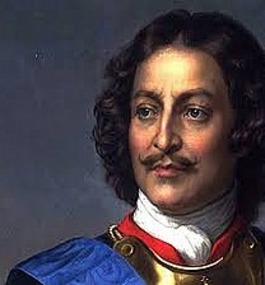
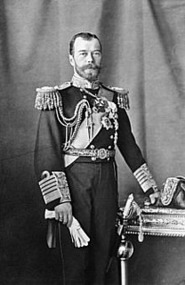
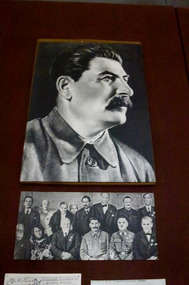
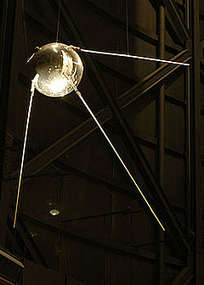
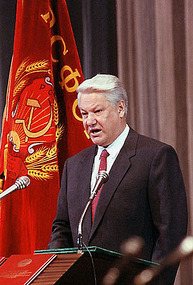
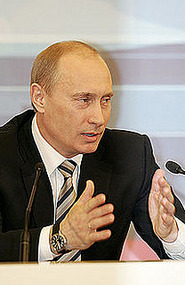
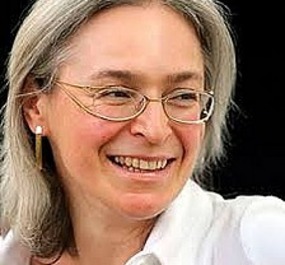
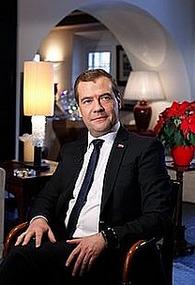
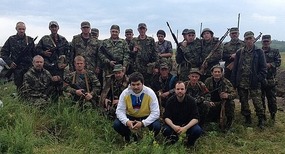





2025-05-22